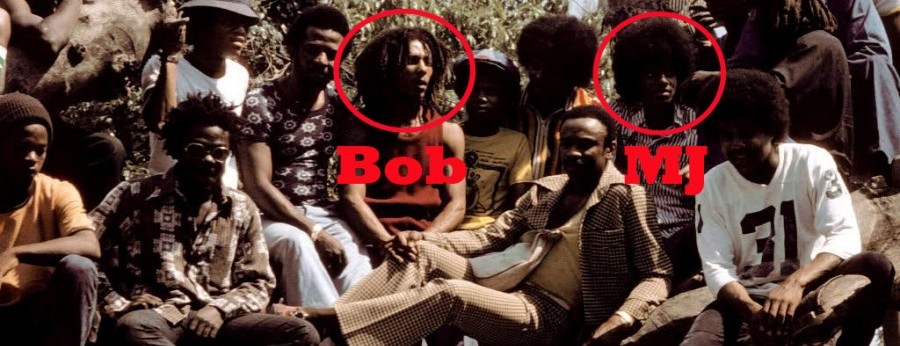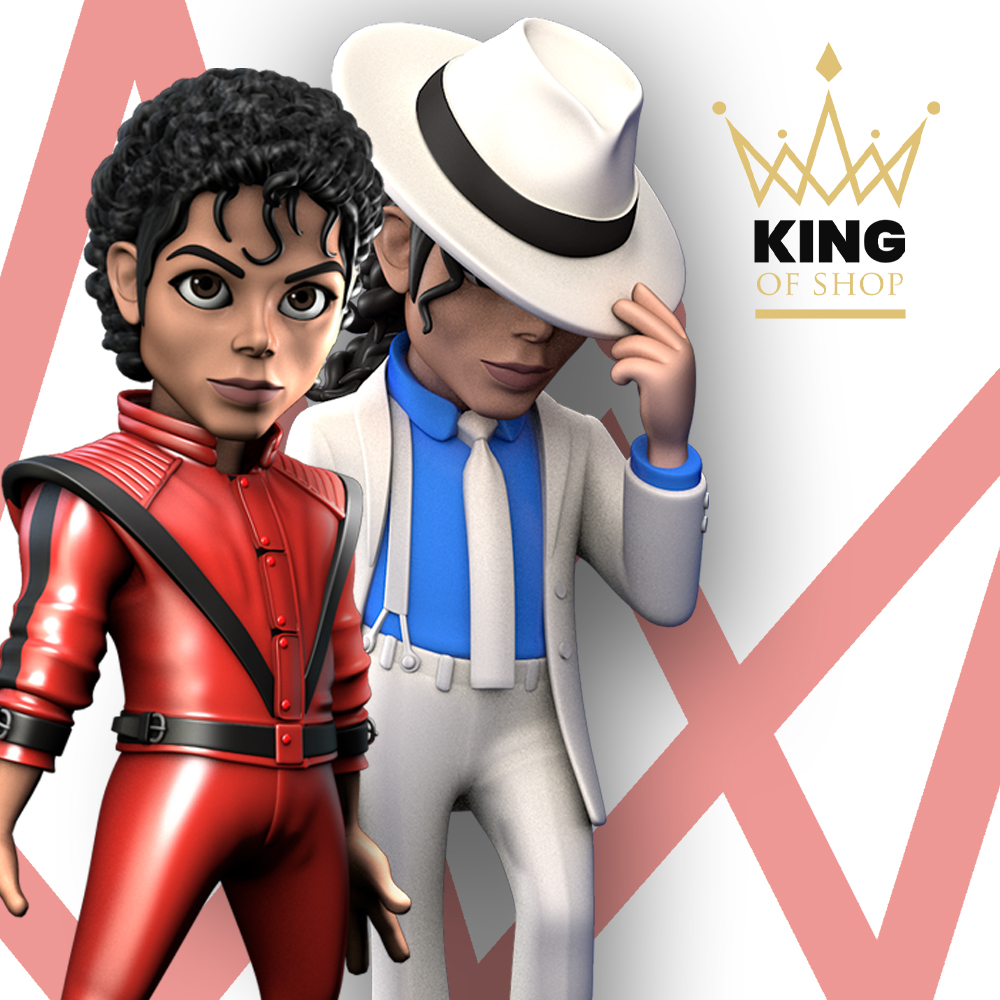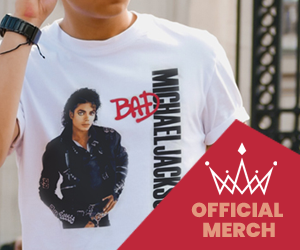WERE YOU AWARE that the King of Reggae once occupied the stage alongside the King of Pop? What is perhaps most amazing about this small bookmark in Marley’s life is that the odds of two future megastars meeting and performing together on the same stage are so infinitesimal that they are incalculable.
The year was 1975, the same year that Bob Marley breaks internationally with the hit single “No Woman, No Cry” from his Live! album which was recorded over two consecutive nights at London’s Lyceum Theatre in July 1975. In Michael Jackson’s very first trip to Jamaica, Motown’s Jackson Five visited the island to perform a show headlined by Bob Marley and the Wailers.

(Photo by Lee Jaffe)
Despite Michael and Jermaine’s solo successes, the Jackson Five, which also included brothers Marlon, Jackie, and Tito – and later Randy – were on the decline in 1975, and would leave the Motown label just one year later resulting in the group being sued by Motown for breach of contract. This meant little to the adoring fans in Jamaica who relished the opportunity to see Michael Jackson perform alongside their beloved Bob Marley. As a solo artist, Jackson had already sold several million records by the time the group made their first visit to Jamaica.

with promoter Chester McCullough and some close friends
The show, which was initially scheduled for February 15, 1975, was held at Kingston’s National Arena on March 8, 1975 and featured the Wailers original line-up of Bob Marley, Peter Tosh, Bunny Wailer along with Carlton Barrett (drums), Aston “Family Man” Barrett (bass), Al Anderson (lead guitar), Lee Jaffe (harmonica) and a brass section of Bobby Ellis (trumpet) and Richard “Dirty Harry” Hall (saxophone). Also on the bill were Marcia Griffiths, Bongo Herman, and the I-Three. The Jackson Five took the stage nearly an hour and a half prior to the Wailers and gave a tremendous performance with their fancy footwork and hit songs.
(click < > to scroll)
The show lasted for more than six hours with the Wailers playing until 4:00 a.m. The fans couldn’t get enough of Marley, Tosh, and Livingstone with the audience in the ten dollar section being forced to break through police barriers into the fifteen dollar seats in order to get a better glimpse of the stage.

as the Jackson 5 at the National Arena in Kingston, 1975
(Photo by Neville Garrick © Fifty-Six Hope Road Music, Ltd.)
According to a review of the show by Balford Henry which was published in the Jamaica Gleaner on March 11, 1975, poor seating organization and technical audio problems resulted in the show starting almost two hours after the scheduled start time. Comedian Ranny Williams had the unfortunate task of warming up a crowd already frustrated by the late start.
(Photos by Neville Garrick © Fifty-Six Hope Road Music, Ltd.)
All was forgotten as the Wailers wrapped their set just after 4:00 am with the crowd still dancing and cheering for more. As reported by Balford Henry in his review of the show in the Jamaica Gleaner, the show ended with “hundreds of Bob Marley and the Wailers fans still dancing inside the National Stadium clamouring for more.”
Music from Dubwise Garage (bobmarleyconcerts.com)
Photo Curation by Manu Morales
Photos by Lee Jaffe, Neville Garrick, and an unknown French photograher
Archival materials thanks to Midnight Raver and Neville Garrick
SOURCE: BOB MARLEY









Believe me, I just saw this. But, I thought I should tell you that this show was not “one of the last” for the Wailers. It was the last time The next day Bob flew to England with a new back up including the Wailers band and the I-Three. They never played together, again. Rita was determined, however, that they should do this show together. Peter and Bunny didn’t want to talk with Bob about it. They felt it was time to end the relationship with Chris Blackwell and he wouldn’t stand for it. I know because I was the liaison between them, the promoter, Chester McCullock and the public via the Gleaner.
I hope people one day to get a chance to read the supplement I singlehandedly wrote about Bob when he died. There are so many things people don’t know about him. But, I can tell you he was a good person but he was a captive of so many people who wanted him to go in different directions, no matter how hard he fought for his independence. I am not even sure he died an independent man, or a captive because he was spending most of his life in NYC.
I knew him as a child, because I grew up in his community. I knew as a journalist because I interviewed him and Rita whenever he travelled and returned home to 56 Hope Road in Kingston for the newspaper. I knew his him as he found to establish his own label, Wail N’ Soul, and I covered his funeral in 1981 for the newspaper. It is a pity he died so young, but I guess one day it will all come together and we will all know the real facts about his life and his death.
Balford Henry
August 1, 2017
Incidentally I am now the Senior Reporter at the Jamaica Observer in Kingston.